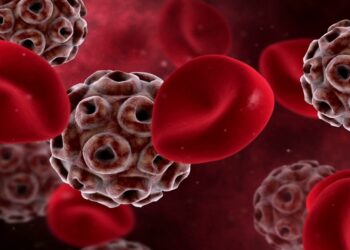Cannabidiol (CBD) has garnered immense popularity over the recent past, thanks to its incredible therapeutic effects. If you’re only now getting introduced to CBD, you may be having scores of questions on exactly what this substance is. Well, you need not fret, as we’ve compiled a list of the top pressing questions about CBD that need answering.
1. What is CBD?
CBD stands for cannabidiol. It’s one of the extracts that’s obtained from the cannabis plant, which medical experts recommend for the treatment of various diseases. CBD is one of the more than 130 compounds that have been officially identified in the cannabis plant. These compounds are also known as phytocannabinoids, or simply cannabinoids. CBD is the most widely-researched cannabinoid, whose popularity is only rivaled by its cousin, tetrahydrocannabinol (THC). The primary difference between cannabidiol and tetrahydrocannabinol is that THC contains intoxicating and mind-altering effects, whereas CBD does not.
2. Where exactly does CBD come from?
Though we’ve already hinted that cannabidiol is derived from cannabis, you must realize that cannabis is not a specific plant. Instead, it’s a plant genus that comprises different species, also known as strains. The two most popular cannabis strains include Cannabis sativa and Cannabis indica. Indica strains mostly produce a variant of the cannabis plant known as hemp, while sativa strains produce marijuana. CBD can be derived from both hemp and marijuana. However, most manufacturers prefer hemp, as these plants contain more of CBD and less of THC.
3. How does CBD make you feel?
Most opponents of cannabis use cite the plant’s psychoactive properties, which is understandable. However, like many other compounds from the cannabis plant, CBD does not have any psychotropic properties. Out of the cannabis extracts researched so far, it’s the only THC that comes with significant psychotropic properties.
So, if you’ve decided to integrate CBD into your life, you can use it without the fear of experiencing the infamous “high.” The fact that CBD doesn’t alter your state of mind is instrumental when it comes to choosing your ideal dose. Plus, it enables you to monitor the condition carefully you’re trying to treat using the substance.
4. How does CBD work?
Before you walk into a cannabis store near you to order your next dose of CBD, you must first understand how CBD impacts your body. Generally, cannabidiol works by enhancing the performance of your endocannabinoid system (ECS). The ECS is a system whose critical role is regulating the body’s normal homeostatic balance. Some of the functions that the system plays include relieving pain, treating anxiety, elevating the mood, regulating your sleep-wake cycle, etc.
To perform these functions, the endocannabinoid system relies on its endogenous cannabinoids and endocannabinoid receptors. The two most common endocannabinoid receptors include CB1 and CB2 receptors. Now, your ECS may not always be effective, depending on your overall immunity vis-à-vis the severity of the medical condition you’re trying to treat. That’s where CBD comes in.
When you consume a CBD-containing product, the phytocannabinoids in the product enter your endocannabinoid system and impact the activity of your endocannabinoid receptors, particularly CB2 receptors. CBD binds with your endocannabinoid receptors in a way that changes their chemical structures, making it possible for your endogenous cannabinoids to bind more readily to the receptors. The net result of these bindings is a faster relief from pain, anxiety, inflammation, insomnia, among other medical conditions.
5. Which conditions can CBD treat?
Now, there’s a long list of conditions that medical doctors recommend CBD for. You can use the substance to treat, prevent, or manage;
- Conditions that are symptomized by pain, such as Multiple Sclerosis, fibromyalgia, arthritis, headache, and low back pain.
- Diseases that manifest in inflammation, such as Inflammatory Bowel Syndrome, Inflammatory Bowel Disease, cancer, and acne.
- Anxiety disorders, including Generalized Anxiety Disorder, Post-Traumatic Stress Disorder, Obsessive-Compulsive Disorder, Social Anxiety Disorder, and Panic Disorder.
- Mental conditions like Attention Deficit Hyperactivity Disorder, dementia, and schizophrenia.
- Neurological disorders, such as seizures and Parkinson’s disease.
In addition to the above diseases, you can also use CBD to relieve insomnia, elevate your mood, or improve your appetite. There’s simply no end to the medical conditions that cannabidiol can help with.
6. How is CBD consumed?
There are five popular ways to consume CBD, namely:
- Sublingual administration: Dripping CBD oil tinctures beneath your tongue and then swallowing.
- Topical application: Applying CBD-enriched beauty and skincare products, such as salves and ointments.
- Edibles: This involves eating CBD-infused edibles, including cakes, chocolates, and gummies.
- Swallowing CBD pills and capsules.
- Vaping CBD oil.
Of these five methods, vaping CBD e-juice or administering CBD oil tinctures are the most effective. Not only do these two methods deliver CBD straight to your bloodstream, but they also have a higher bioavailability. Bioavailability refers to the amount of CBD that actually gets to your system compared to the amount consumed in a single dose. Also, seasoned CBD users nowadays are experimenting with newer methods of CBD administration, such as smoking hemp flower and subcutaneous injections. But if you’re a newbie, your best bet is to choose from any of the methods above.
7. What is the best CBD dose?
There’s no ideal CBD dose, which explains why doctors can only recommend, not prescribe the substance. Your ideal CBD dose comes down to several factors, including your body chemistry, the condition you’re treating, your body’s tolerance to the substance, and whether you’re a new or seasoned vaper. The method of consumption is another crucial consideration when working out your ideal CBD dose. If you’re a new CBD user, the convention is to start low and work your way up gradually until you achieve your “sweet spot”.
8. Is CBD legal?
While CBD comes with a cocktail of health benefits, you can only enjoy its therapeutic properties if you’re able to acquire CBD legally in your jurisdiction. CBD is automatically legal in countries where cannabis is legal for both medical and recreational use.


































































































































































































